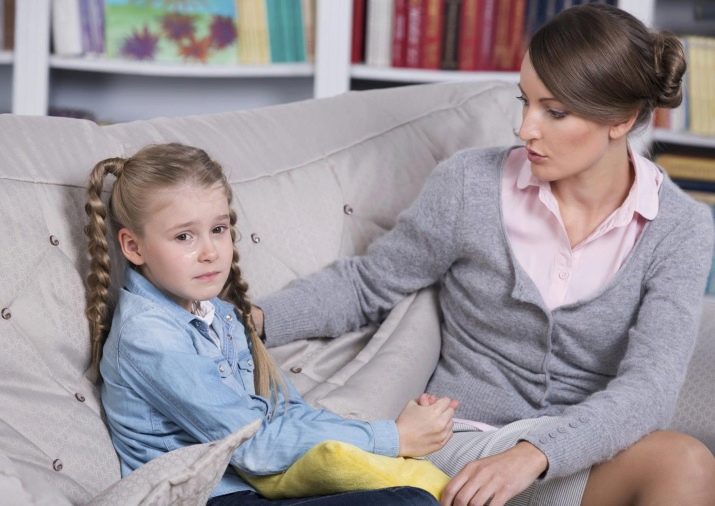Anyone during a strong excitement can lose their thoughts, not find the right words and experience speech difficulties. Sometimes a strong anxiety before an upcoming speech or even a regular conversation develops into a phobia. You should understand the reasons for the appearance of such fear. Are there effective ways to eliminate the ailment?

What it is?
Logophobia (from the ancient Greek logos - “word”, phobos - “fear”) - panic fear of speech. There is another name for this pathology - glossophobia. Most often, a mental disorder associated with a fear of speaking is found in people with speech impairments. A person feels uncontrollable anxiety before any communication with outsiders. Sometimes he experiences so much stress that he utters completely different words instead of those he wanted to say.
A phobia often occurs amid stuttering. In this case, it is divided into three types: neurotic, neurosis-like and mixed disorder.
- Neurotic stutter usually appears as a result of a traumatic situation. Subsequently, cramps appear, provoking stuttering. Logophobe is experiencing a slight anxiety, capable of developing into a panic attack in the process of communicating with a stranger.
The more the speaker is worried, the more difficult it is for him to express his thoughts. He begins to confuse words, abruptly cuts off phrases in the middle, makes attempts to leave. Talking with outsiders is a real test.
- Neurosis-like stutter is a consequence of a weak nervous system. People with this disorder have spasms of the respiratory-vocal muscles during speaking.As a result, the logophobe cannot utter a single word. He feels awkward and ashamed of his forced silence. There is a desire to immediately stop communication.
- Mixed violation contributes to severe neurosis. Anxiety disorder occurs during any communication, except talking with the closest. The logoophobus is not able to enter into dialogue with the seller, the conductor and ordinary passers-by. He experiences extreme stress when displaying an unfamiliar number on the mobile screen at the time of a phone call. Such a person prefers to lead a reclusive lifestyle.

Causes of occurrence
Fear of speaking most often appears in people with congenital or acquired speech defects: lisping, stuttering. The reason for the fear of communicating with strangers may be insecurity, lack of integration. A person fears an unfavorable assessment from others.
Children's ridicule, contempt and bullying by peers contribute to the development of the disease. The shame experienced in childhood for spoken words, rude interruption in the middle, a demand for silence is strengthened in the person’s subconscious and can accompany him all his life.
Severe stress, fear, psychological trauma often lead to speech blockage.
The cause of the disease in an adult is the fear that his speech will be misunderstood. Fear of conveying a thought to listeners in a distorted form due to an illegible and difficult pronunciation often leads to phobia.
The appearance of a fear of speaking is sometimes prompted by impatient listeners who rush, correct or arrange words for a stuttering person. Such communication leads to the fear of becoming an uninteresting interlocutor, pushes the sufferer to retreat. Some logophobes themselves do not accept their own peculiarity, do not want to put up with an existing defect. In this regard, they give themselves the installation of silence.
The appearance of phobia can be caused by an unpleasant odor emanating from the mouth caused by some disease of the gastrointestinal tract.


Symptoms
The following psychological symptoms are inherent in this phobia:
- increased anxiety;
- insomnia;
- causeless fear;
- loss of appetite;
- feeling of inferiority;
- mental stress;
- panic attacks.


There is a specific symptomatology of the disease, the cause of which is stuttering itself:
- spasms of the vocal apparatus;
- difficulty in pronouncing phrases;
- the repetition of individual sounds, syllables and words;
- articulatory cramps;
- duration of speech pauses.
Along with these manifestations, the accompanying symptoms are often observed:
- various facial tics;
- rapid blinking;
- lip tremors;
- muscle tension
- facial expression;
- increased sweating;
- lack of air.

How to treat?
According to the degree of manifestation of symptoms, the disease is divided into 3 types:
- with mild logophobia, a person is afraid of speaking in public;
- with an average fear of dialogue with a stranger;
- in severe cases, any thought of communication makes the logophobe panic.
At an early stage of the disease, it is easy to get rid of the pathology. In all other cases, the help of a qualified specialist is required. The therapist selects an individual approach to each patient. Most often, complex treatment is used.
First of all, the patient needs stabilization of the psychoemotional state and speech correction. The specialist teaches the patient to master new communication skills and acquire other habits during the conversation. The doctor works in close contact with a speech therapist who eliminates speech defects.
Gestalt therapy helps get rid of old grievances and hidden anxieties. Cognitive-behavioral correction is aimed at working out and eliminating negative associative chains, introducing positive thinking into the mind.Individual sessions and group trainings teach calm, fearless communication with others.

Drug therapy does not help to overcome fear, but it calms the nervous system and significantly reduces the symptoms of neurosis. Most often, antidepressants and tranquilizers are prescribed to the patient. Other specialists help to stabilize the patient’s nervous state: physiotherapists, massage therapists, acupuncturists and reflexologists.
A person can alleviate his suffering on his own with speech therapy massage and daily breathing exercises that eliminate cramping of the neck muscles. Affirmations, meditations, relaxing baths help distract from negative thoughts and tune in to positive emotions. Autogenous regular training allows you to get rid of mental discomfort, unpleasant memories, inveterate insults.
Herbal infusions and decoctions well calm the nervous system. Infusions of the root of odorous, deaf nettle or oregano ordinary adults and adolescents are advised to take 1 tablespoon 3 times a day, and for children it is enough to gargle with a decoction of herbs.

Recommendations of specialists
There are several tricks helping the logophobe to distract from terrible thoughts and decide to pronounce a phrase in the presence of strangers:
- during the conversation, you should look into the interlocutor’s eyes, focus on holding your gaze, and not on saying a phrase;
- pronounce the words on the exhale, focus on the first syllable;
- when words are “stuck” in the larynx, it is necessary to repeat the attempt to pronounce them, while it is not recommended to look away from the interlocutor;
- a successful statement stimulates the continuation of speech.

When stuttering children, parents must be especially sensitive:
- In no case should you blame the child for incorrect or unclear pronunciation of words;
- the child’s unwillingness to pronounce words in the presence of strangers can mean the onset of anxiety disorder, therefore, a consultation with a psychologist is required;
- at the first signs of stuttering, you need to contact a speech therapist;
- spasms that occur when pronouncing vowels can be overcome with the help of singing (it is advisable to record the baby in the choir);
- with a speech impairment the baby should speak slowly, pronounce the words clearly, which will allow the little man to answer without difficulty at a moderate pace;
- A stuttering child must be listened very carefully and patiently, you must not interrupt him, and you must pay attention to the meaning of the phrase, and not to its utterance.
It is advisable to conduct daily conversations with the baby and discuss all kinds of events in a calm and friendly atmosphere. During these family events, any criticisms and direct questions are forbidden.











